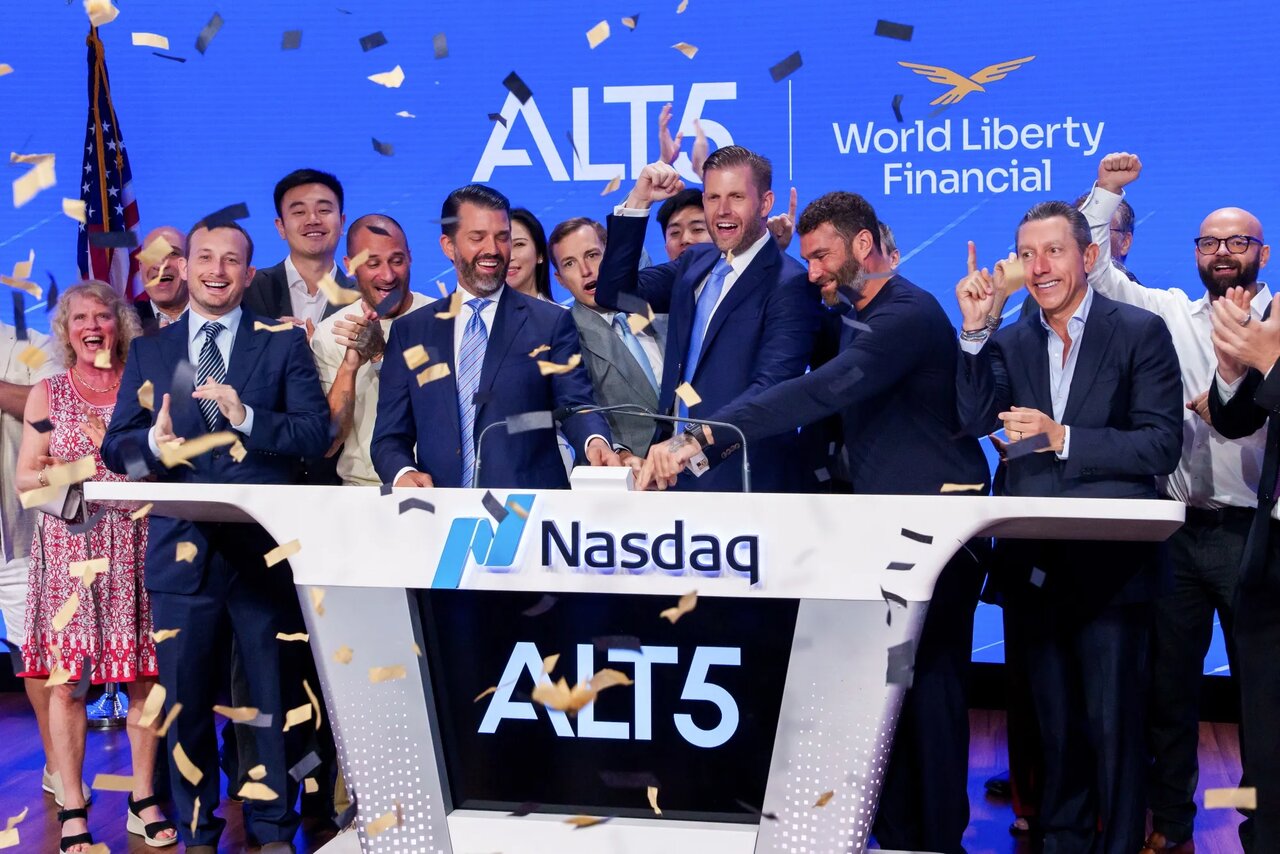The family business: Drones, crypto, and Trump’s corruption machine

TEHRAN – The U.S. War Department’s recent purchase of 3,500 drone motors and related components from Unusual Machines — a company in which Donald Trump Jr. holds roughly a $4 million stake and served as an adviser — has intensified scrutiny over what critics call an administration increasingly comfortable turning policy into personal profit.
The Army has signaled a possible follow-on order of 20,000 parts next year, highlighting the company’s rapid rise.
Unusual Machines’ ascent has dramatic optics: the company awarded Trump Jr. over 330,000 shares — a stake worth about $4 million — and publicly showcased components at a Mar-a-Lago demonstration after he joined as an adviser.
Shares surged when his association became public. Ethics experts and watchdogs say the proximity of family investments to procurement decisions creates an unavoidable perception of impropriety.
The drone deal is not an isolated episode but part of a broader pattern of influence and transactional governance unfolding across the administration.
Treasury Secretary Scott Bessent’s stabilization package for Argentina—expanded to $40 billion—provoked outrage within Trump’s base, many of whom viewed it as a betrayal of the America First agenda.
The deal, exchanging U.S. dollars for Argentine pesos, offered little benefit to ordinary Americans but sizable gains for billionaire hedge fund manager Rob Citrone, a longtime friend of Bessent and his former associate at Soros Fund Management.
Citrone had heavily invested in Argentine bonds and equities tied to President Javier Milei’s austerity measures. CPAC-affiliated operatives, including Matt Schlapp and Tactic Global, coordinated meetings between Milei, Citrone, and U.S. officials, illustrating a tight nexus of political influence, private profit, and foreign lobbying.
Likewise, the White House’s pardon of Binance founder Changpeng Zhao and the emergence of the Trump family’s World Liberty Financial (WLF) stablecoin (USD1) reveal an alarming convergence of regulatory rollback and private enrichment.
Reporting shows a $2 billion Emirati investment tied to USD1 and parallel U.S. facilitation of AI chip sales — deals reportedly brokered by Trump envoys and close family allies — that preceded favorable policy shifts and, ultimately, a pardon for an executive whose company once paid $4.3 billion in fines.
Observers describe the sequence as a clear pattern: market access, political access, and policy relief benefiting private interests.
This summer’s chip-and-crypto dealings deepened the entanglement of public duty and private profit. In the Mediterranean, Trump’s Middle East envoy Steve Witkoff met Sheikh Tahnoon of the UAE aboard a super yacht off Sardinia — the Italian island long known as a playground for global elites.
The meeting underscored a growing blend of diplomacy and business. Months later, the White House moved to relax restrictions on exporting advanced AI chips to Emirati firms tied to Sheikh Tahnoon’s G42.
Family advisers, G42 executives, and White House tech aides operated in overlapping roles as the negotiations unfolded, creating a web of commercial and diplomatic interests that ethics rules are supposed to prevent.
Key insiders who helped broker the deals had potential conflicts that were formally tolerated rather than barred. David Sacks, the administration’s AI-and-crypto czar and a longtime venture capitalist, received an ethics waiver to participate in chip talks despite prior fund ties to Persian Gulf investors; Witkoff initially claimed to be divesting from World Liberty even as his son was publicly sealing the crypto investment.
According to the New York Times, internal dissent within the White House was overridden — after the dismissal of a key national-security official amid outside agitation — and officials who tried to tighten safeguards were sidelined.
Taken together, these episodes sketch a Washington in which governance, national security procurement, and international finance are increasingly threaded through personal relationships and private gain.
For a president who campaigned on “draining the swamp,” the pattern reads instead as a systematic corrosion of norms — where rules meant to guard the public interest bend under the weight of family fortunes.
Leave a Comment